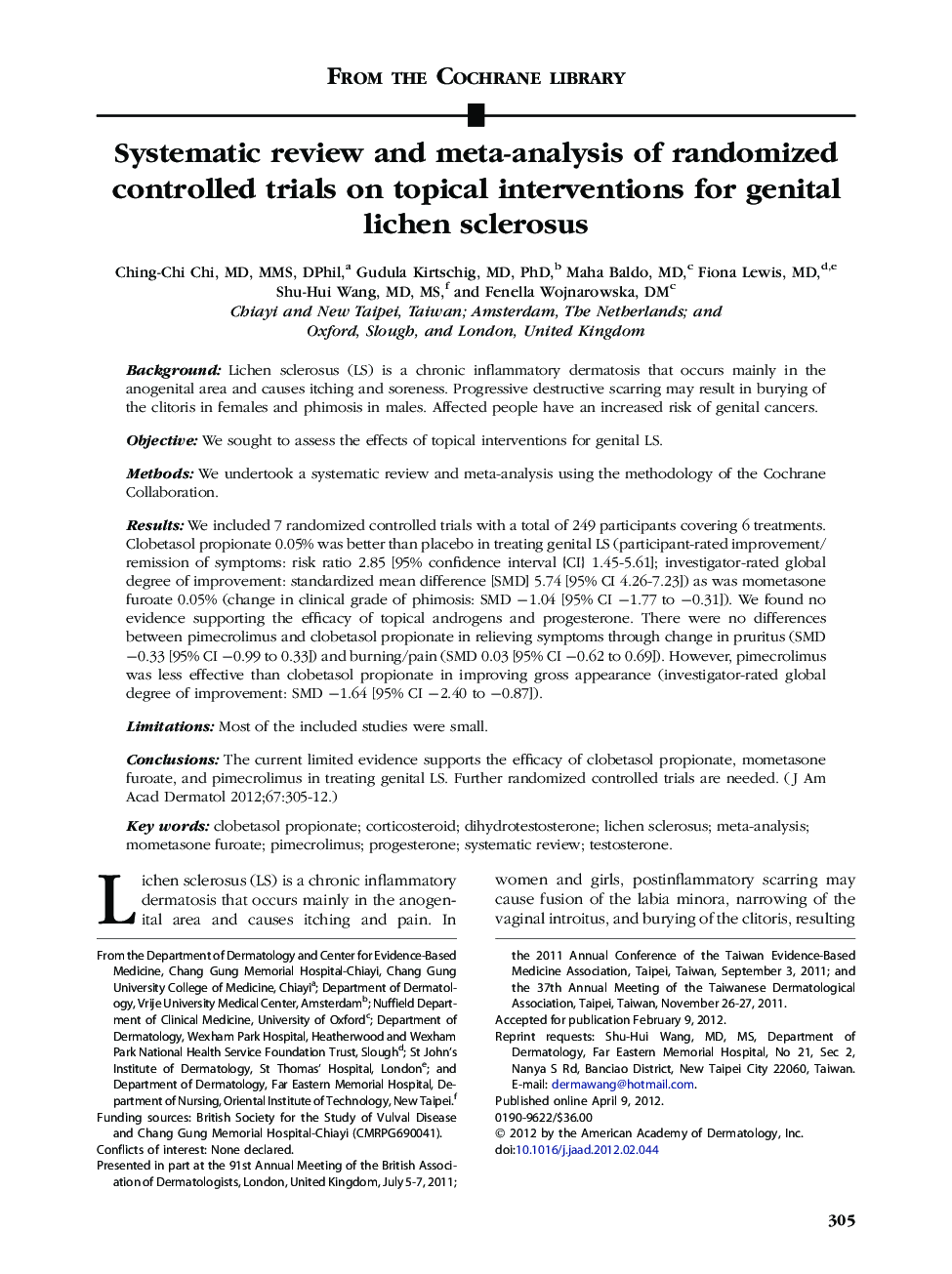| Article ID | Journal | Published Year | Pages | File Type |
|---|---|---|---|---|
| 3205794 | Journal of the American Academy of Dermatology | 2012 | 8 Pages |
BackgroundLichen sclerosus (LS) is a chronic inflammatory dermatosis that occurs mainly in the anogenital area and causes itching and soreness. Progressive destructive scarring may result in burying of the clitoris in females and phimosis in males. Affected people have an increased risk of genital cancers.ObjectiveWe sought to assess the effects of topical interventions for genital LS.MethodsWe undertook a systematic review and meta-analysis using the methodology of the Cochrane Collaboration.ResultsWe included 7 randomized controlled trials with a total of 249 participants covering 6 treatments. Clobetasol propionate 0.05% was better than placebo in treating genital LS (participant-rated improvement/remission of symptoms: risk ratio 2.85 [95% confidence interval {CI} 1.45-5.61]; investigator-rated global degree of improvement: standardized mean difference [SMD] 5.74 [95% CI 4.26-7.23]) as was mometasone furoate 0.05% (change in clinical grade of phimosis: SMD −1.04 [95% CI −1.77 to −0.31]). We found no evidence supporting the efficacy of topical androgens and progesterone. There were no differences between pimecrolimus and clobetasol propionate in relieving symptoms through change in pruritus (SMD −0.33 [95% CI −0.99 to 0.33]) and burning/pain (SMD 0.03 [95% CI −0.62 to 0.69]). However, pimecrolimus was less effective than clobetasol propionate in improving gross appearance (investigator-rated global degree of improvement: SMD −1.64 [95% CI −2.40 to −0.87]).LimitationsMost of the included studies were small.ConclusionsThe current limited evidence supports the efficacy of clobetasol propionate, mometasone furoate, and pimecrolimus in treating genital LS. Further randomized controlled trials are needed.
